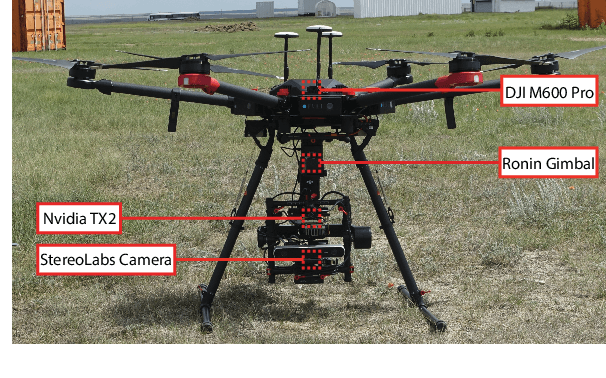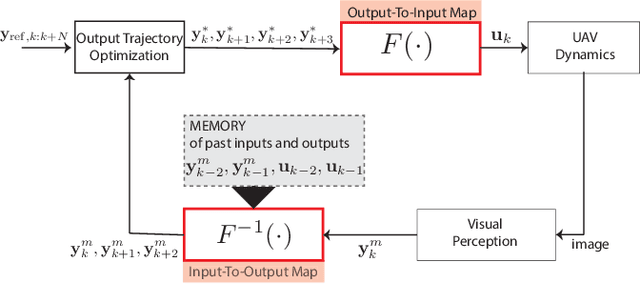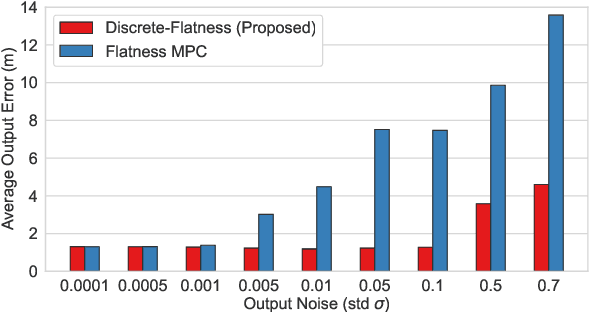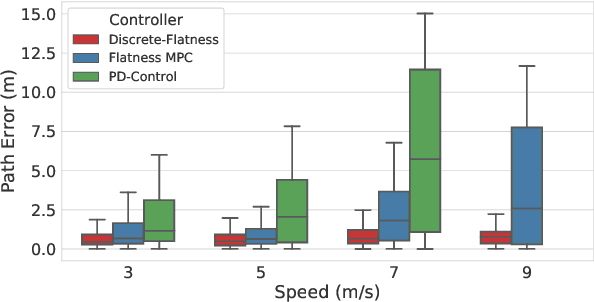Fly Out The Window: Exploiting Discrete-Time Flatness for Fast Vision-Based Multirotor Flight
Paper and Code
Sep 30, 2021



Current control design for fast vision-based flight tends to rely on high-rate, high-dimensional and perfect state estimation. This is challenging in real-world environments due to imperfect sensing and state estimation drift and noise. In this letter, we present an alternative control design that bypasses the need for a state estimate by exploiting discrete-time flatness. To the best of our knowledge, this is the first work to demonstrate that discrete-time flatness holds for the Euler discretization of multirotor dynamics. This allows us to design a controller using only a window of input and output information. We highlight in simulation how exploiting this property in control design can provide robustness to noisy output measurements (where estimating higher-order derivatives and the full state can be challenging). Fast vision-based navigation requires high performance flight despite possibly noisy high-rate real-time position estimation. In outdoor experiments, we show the application of discrete-time flatness to vision-based flight at speeds up to 10 m/s and how it can outperform controllers that hinge on accurate state estimation.
 Add to Chrome
Add to Chrome Add to Firefox
Add to Firefox Add to Edge
Add to Edge